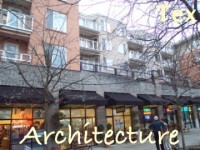By way of full disclosure, I am a Brookhaven resident, and an architect and developer. I am familiar with development economics and obstacles, as well as how public rules and incentives can mold development. I own no commercial property in Brookhaven, nor do I have any plans to do so. This is written from the viewpoint of a Brookhaven citizen with a keen interest in good urban planning and making Brookhaven a better place to live.
First, I agree with opponents’ assertion that we do not need to incent redevelopment in Brookhaven. Brookhaven’s demographics and location make this one of the most desirable places to develop in the Atlanta metro area and, in fact, in the Southeast. Developers are lining up for a shot at the MARTA station parking lot, and Buford Highway redevelopment is just a matter of time.
Why then Redevelopment Powers? Because popularity, commerce and a growing tax digest don’t make a city a great place to live—it’s a city’s public realm that truly makes the difference. It’s the streets, plazas, parks, trails, sidewalks, meeting places, public art, playgrounds, and neighborhoods that make a city a great place to live. Well, it’s the people, of course. But to realize that, people need myriad ways to interact, and it turns out that “incidental interactions”—ie. the kind that happen on the sidewalk or playground, at a local restaurant, in the dog park, during a neighborhood fun run or at a concert on the square—are the essential glue that creates a great community. Yes, online forums, public meetings, schools, churches, and HOA’s also contribute significantly to this social fabric, and most communities have those. What the most memorable communities have, though, is a great public realm. Think about the towns and cities you like to visit or consider special. What’s special about them? Is it the flagship companies located there? The convenient airport? The low housing costs? The smooth 5 lane commercial strip lined with restaurants and auto dealerships leading into town? These are all useful characteristics, but likely it is the public spaces and public life of a place that makes us want to spend time there.
To create this for Brookhaven, we have to provide healthy attractive ways for people to get out of their cars and experience Brookhaven and Brookhaven-ites face-to-face and on foot. This requires some serious public investment.
Private development is good at doing several things. It can build buildings and fill them with businesses which provide jobs and tax revenue for Brookhaven. It can attract additional private development. It can provide a return for its investors, thereby keeping the wheels of commerce turning. Sometimes, it will provide public improvements such as sidewalks, turn lanes and rebuilt utility lines across the public frontage of its site.
But certain things, private development is NOT good at doing. Private development has little interest in planning beyond its particular site boundary or investing more than what can be shown generating a clear-cut return on a proforma—it’s not a big picture enterprise. It’s not interested in larger public investment per se. This isn’t a knock on private development—it’s a micro-economic creature not designed to tackle macro-economic goals.
Let’s consider Buford Highway. If our vision is to have new buildings and businesses line Buford Highway much as it is now, but spiffy and taller, private development can do that without City of Brookhaven investment. If, however, our vision is of a transformed Buford Highway, a street vibrant with cars AND walkers and bicycles, with storefronts pulled up close to the sidewalks, offices above and parking behind, and with a linear park and bike/jogging path lining the North Fork of Peachtree Creek, then only City government has the vision and resources to make this public realm a reality.
The kicker on this kind of thinking/planning is that the redesign of Buford Highway and addition of a new linear park along North Fork of Peachtree Creek has the potential to transform the area in ways we can barely conceive. Much like along the Atlanta Beltline, new development may want to orient buildings toward the new park as much as to the street, thereby doubling the potential property value. This, in turn, would generate a larger tax base for Brookhaven than a conventional redevelopment approach would. More importantly, it would enhance Brookhaven’s public realm, the public spaces where we meet and enjoy activites and nature and build community—the realm that makes Brookhaven memorable and special.
And therein lies the great value of the Redeveloment Powers Act. Private enterprise isn’t going to do this. Only Brookhaven citizens can accomplish a vision and project on this scale. The City staff and City Commission is the action arm of Brookhaven citizens, and Redevelopment Powers are the tool that can allow Brookhaven to do this at no incremental cost to Brookhaven citizens. Good planning can pay for itself.
This scenario is perfectly laid out for a TAD (Tax Allocation District) under The Redevelopment Powers Act. The City issues TAD bonds to finance the building of the linear park and redesign of Buford Highway; private development rejuvenates the corridor with new buildings and businesses built to meet the City’s design guidelines; the increased property value generates increased taxes which pay the interest and principal on the bonds. We Brookhaven citizens get a new restaurant-shop-business district plus a 2 mile long park and multi-use path along a creek without paying higher property taxes. How can this be bad for Brookhaven citizens?
In essence, when we talk Redevelopment Powers, we are talking the business principle of investment. If we invest borrowed money (bonds), and receive a return higher than the cost of borrowing, that is generally perceived to be a good return on investment (ROI). Why don’t we wait for surplus funds (savings) to accrue and invest then? Because we would be foregoing years of ROI while we wait for enough funds to accrue. Building through savings would be a safe financial route, but discouragingly slow.
We can give more examples of how Redevelopment Powers could be leveraged to enhance Brookhaven—the Peachtree Road corridor, a Brookhaven Beltline, a completely redesigned and rebuilt Ashford Road/Johnson Ferry commercial node. But utility doesn’t appear to be the heart of the opponents objections. The objections seem rooted in fear of what can go wrong.
TAD bonds are issued and backed solely by the income stream generated in the TAD district (additional property taxes due to additional property values created). By law, Brookhaven citizens and Brookhaven’s general fund have no obligation to make good should the income stream not meet projections. Bondholders are at risk. Opponents point out that in such a scenario, Brookhaven may feel the need to make good in order to protect Brookhaven’s general creditworthiness. That’s possible, but the point made by TAD expert Sharon Gay at her recent presentation is that no TADs in Georgia (that she is aware of) have been supported by a government’s general funds. The worst case scenario is that TAD bondholders’ payout term is extended a couple years–and that is rar, even after our recent Great Recession. Most TAD bonds have been paid off early due to higher revenues than expected. This is testimony to the strict and conservative underwriting rules governing a TAD bond issue.
The bigger objection seems to be unnecessary use of redevelopment tools and unwarranted payouts to private enterprise. Redevelopment tools such as TAD districts can only be activated by a vote of our elected representatives (City Council) and only after an extensive public review process. At heart, then, this testifies to distrust of those we’ve chosen to lead us, fear of cronyism between government and developers, and, ultimately, a lack of confidence in our own ability to choose leaders and govern our city. What can I say? The newspapers are full of stories of political cronyism and corruption. It happens. Cynicism of government is widespread. And yet, if we aspire to anything greater than a just-let-it-happen Brookhaven, government is our best tool to get there. Only government—the voice and arm of Brookhaven voters—can have the vision, authority and fundability to accomplish large-scale projects of public benefit.
If we want to create a better Brookhaven, then, we will need to do so through our City Council and City staff. Talk more with your leaders if you don’t trust them. Change them if you must. If you believe government by nature is corrupt, I can’t influence your opinion. But if you believe Brookhaven can be a great place to live, and you understand how public investment and the public realm make it so, then give our elected leaders the tools they need—Redevelopment Powers–to fufill that vision.




Hi Jack, I am not a resident of Brookhaven, or even Georgia, however having gotten involved in our town development, I think your comments are spot on. In fact it is so well articulated, I plan to share it with our town leaders and others wanting to see development the way you envision it. We can learn a lot from Brookhaven and the desire to build a people/community centric place to live, where people want to live and those who visit want to return. I fully agree that government acting on behalf of its residents, is the only entity with long term vision beyond property boundaries.
Thanks for a great article that has impact far beyond Brookhaven.
Thanks for the comment, Lenny! Unfortunately, it looks like the Redevelopment Powers for Brookhaven will be defeated next week. The problem is voter distrust of their elected officials. Honest, transparent government is key for voter support and that seems to be in constant question in the Atlanta area right now…